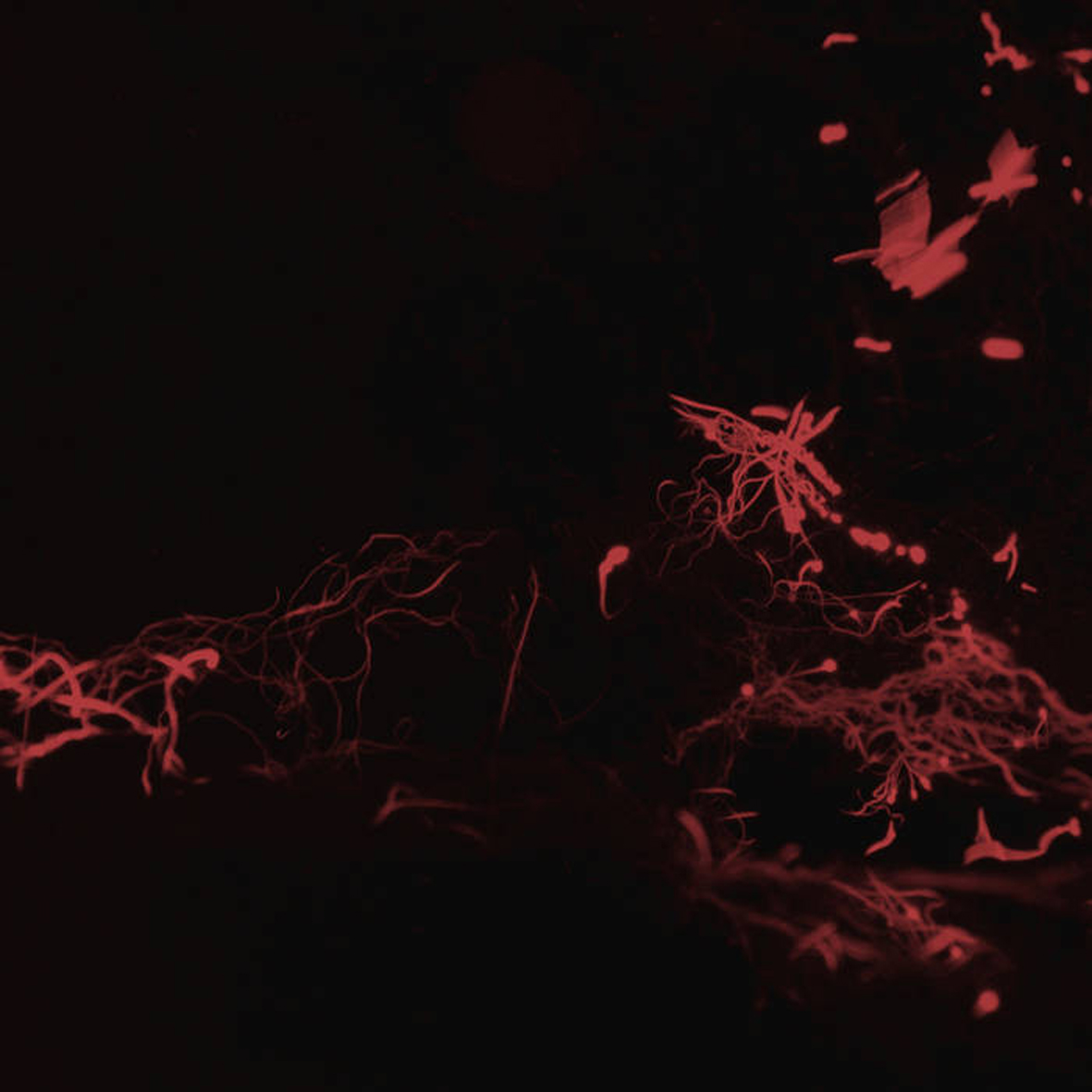Svarte Greiner, "Moss Garden"
 Erik Skodvin is having quite an atypically prolific year, following up a stellar B/B/S/ album and the much-anticipated reissue of Deaf Center's debut with the return of his Svarte Greiner guise.  As with all Skodvin projects, Moss Garden is quite a dark and quietly heavy affair, but it is a bit more abstract, mysterious, and longform than much of his other output.  While Skodvin's eerie Ebow work is sometimes recognizable amidst the brooding murk and seismic shudders, Moss Garden works best when it is just a billowing black cloud of seething menace.
Erik Skodvin is having quite an atypically prolific year, following up a stellar B/B/S/ album and the much-anticipated reissue of Deaf Center's debut with the return of his Svarte Greiner guise.  As with all Skodvin projects, Moss Garden is quite a dark and quietly heavy affair, but it is a bit more abstract, mysterious, and longform than much of his other output.  While Skodvin's eerie Ebow work is sometimes recognizable amidst the brooding murk and seismic shudders, Moss Garden works best when it is just a billowing black cloud of seething menace.
Moss Garden is divided into two side-long pieces, "The Marble" and "Garden."  "The Marble" opens the album in fine fashion with some distant and sinister swooping noises over a simmering bed of crackle and hiss.  Gradually, the piece starts to cohere as a forlorn and subtly quavering drone fades in along with some murky, glacially unfolding bass swells. That is where the piece more or less settles for a while, content to just hang in the air as an organically undulating fog, though Skodvin stealthily keeps it unpredictable with occasional buried snarls of distorted guitar and subtly shifting harmonies.  The true beauty of "The Marble," however, lies far more in how it flows and feels than in its notes, harmonies, and textures.  Skodvin is a brilliant illusionist, artfully erasing or concealing his own presence so effectively that the piece feels like a spontaneous (super)natural event.  In fact, the edges are so blurred here that previously apt terms like "neo-classical" or "cinematic" no longer seem relevant at all, as this music feels more like a creepy dream or perhaps an apparition seeping up from the floorboards than an earthbound composition.  Actually, maybe "cinematic" is not that far off the mark after all, albeit with the caveat that "The Marble" sounds like a fully formed and very arty aural horror film rather than a mere soundtrack to someone else's images.
"Garden" is quite a bit harsher, opening with a loud and reverberant crash of cymbals that dissolves into slowly fading afterimage of grinding metal.  That crash is repeated many more times over the course of the piece, with Skodvin mischievously allowing each eruption to fade into near-silence before jarring me yet again with the next.  Between those violent outbursts, an erratically throbbing and dissonantly harmonizing drone piece begins to emerge, as does an unpredictable layer that sounds like a field recording of a pond or meadow on a summer night.  Structurally, it is quite an interesting and unusual piece, as I am wrong-footed by the violent and perplexingly timed crashes of metal again and again.  It is definitely a willfully uncomfortable listening experience.  That is not exactly a flaw though, as the lingering after-effects of the crashes make it feel like the more melodic aspects of the piece are being slowly devoured by giant rusted metal teeth.  I can certainly appreciate that.  Occasionally, some snatches of twisted strings stick around long enough to provide a glimpse of curdled beauty to appreciate as well, but the piece's true essence is primarily the strange tug-of-war between form and entropy.
If Moss Garden has a legitimate flaw, it is the one common to a lot of vinyl releases:  the album seems to exist primarily as a delivery device for "The Marble," while the B-side feels like a lesser experiment that was stretched to a similar length.  The other arguable flaws are quite a bit more subjective, as this amorphous "dark ambient" strain is not my favorite of Skodvin’s many sides and he seems to be purposely avoiding anything resembling a strong hook or immediately gratifying theme.  That said, he also manages to avoid anything remotely conventional or lazy.  As a result, Moss Garden occupies a unique and fascinating gray area: it is too bizarre, purposeful, complex, and unpredictable to work as drone or ambient music, but too "unmusical" and experimentally structured to feel like a composition.  In short, it is quite an ambitious and transcendent release, even if the second half does not quite capture Skodvin at the peak of his powers–that Skodvin can be found on the B/B/S/ album.  Moss Garden is a comparatively minor album, but there is a lot to like for those of us interested in hearing Erik stretch his disquieting vision into blackened new vistas.
Samples:
 



